Recent developments in Poland show how difficult it can be to hold together democracy and security, two of the existential goals that have shaped the European Union. The EU should sanction Poland for its government’s violations of fundamental civil rights, while at the same time supporting Warsaw in tackling aggression coming from Belarus and Russia at the EU’s eastern border. The contradiction between strengthening the rule of law and staving off threats to security in an interdependent environment represents a cautionary tale for the Summit of Democracy that the Biden administration is holding in December.
The dispute over democracy has been dividing the EU and Poland for the last few years. Concerns about the preservation of the rule of law in Poland have been voiced by the EU at least since 2015. At the end of 2019, Poland’s parliament approved a law making it easier to dismiss judges critical of the governing Law and Justice party’s judicial reforms. After two successive steps, in December 2020 the European Commission sent a letter of formal notice to Poland regarding the functioning of the Disciplinary Chamber of the Supreme Court, signaling that “the mere prospect for judges of having to face proceedings before a body whose independence is not guaranteed is liable to affect their own independence.” In a “regulation” issued on December 16, 2020, the EU reaffirmed that respect for the rule of law is a fundamental condition for the protection of the other values on which the union is founded, such as freedom, democracy, equality, and respect for human rights. In the same regulation, stating that “there can be no democracy and respect for fundamental rights without respect for the rule of law and vice versa,” the European Parliament and the Council of the European Union warned Poland that they could withhold financial aid if the rule of law was not upheld.
Since April this year, Brussels and Warsaw have been trading blows, culminating in a decision by the European Court of Justice (ECJ) in favor of initiatives by the European Commission to adopt punitive measures. In October, the Polish Constitutional Tribunal replied with a list of arguments against the right of European institutions to regulate on issues related to the application of the rule of law in the member states. Finally, more recently, the ECJ endorsed a decision by the European Commission to inflict a financial penalty of one million euros per day on Poland until the violations of the rule of law are removed.
The principal bone of contention with the EU is the lack of independence of the judiciary from the Polish government. Although Article 45 of the Polish constitution acknowledges the same principles defended by Brussels, the Polish government has taken control of the judiciary, manipulating its powers for political purposes. Even the Polish Constitutional Tribunal is no longer willing or able to defend the fundamental principles of rule of law. On the contrary, its judges have attacked the cornerstone of the European system, the supremacy of European law on national law. This principle implies that decisions by European judges cannot be challenged by national courts. Without it, the EU’s single market and most European common initiatives would be deprived of legal certitude and the EU would be just like other international organizations, unable to share sovereignty.
For the European Union, the threat is existential. However, the EU’s legal instruments are at their limits. Appealing to Article 7 of the Treaty on European Union, which aims at ensuring that all EU countries respect the common values of the EU, including the rule of law, has proven useless. The dispute about the democratic status of each member state is now openly a political one. Confronted with the Polish case, governments of other countries seem to be well aware of the political dimension of the problem. After the very modest impact of Brexit on the other European democracies, most EU political leaders are afraid that nationalism and authoritarian temptations will morph into souverainism within the EU rather than outside it. Hungary and Poland do not want to renounce the hefty financial support from the other EU countries. However, if their democratic degradation is not sanctioned, all other European democracies are exposed to similar threats by souverainists within their borders. For this reason, national leaders across the EU have driven the initiative against Poland even more forcefully than the European Commission or the ECJ, and surely more efficiently than the European Parliament.
However, in recent weeks, Poland’s isolation from most other European nations has come to an end. Thousands of migrants and refugees fleeing mainly from Iraq, Afghanistan, and Syria have been deliberately funneled through Belarus to the Polish border. The EU has accused Belarusian dictator Alexander Lukashenko of “gangster-like abuse,” luring migrants with the false promise of easy access to the EU. A few thousand migrants are camping at the European border, which the Polish authority has closed with barbed wires, in terrible conditions, some of them are dying in the cold. Their weaponization by the Belarusian regime has caused outrage in Europe. The Belarusian military reportedly came just short of firing on Polish border guards. Russian President Vladimir Putin has made no mystery of his support for Lukashenko, and Moscow has sent military airplanes to the skies of Belarus, called on Europe to pay Lukashenko for keeping the migrants, and blamed the West for causing the crises from which refugees are running.
In the meantime, Putin has aggravated the crisis at the border of Ukraine, a country eager to have tighter relations with Europe. The Russian leader sent more than 90,000 troops to the area in a move reminiscent of what happened before the invasion of Georgia in 2008. Putin intends to generate parallel crises, moving against Ukraine, while helping Belarus pile pressure on the Polish border, straining Europe’s internal tensions on the distribution of migrants.
Putin’s move comes in a moment when long-serving German Chancellor Angela Merkel is on her way out with a new government in formation in Berlin, French President Emmanuel Macron is entering a paralyzing electoral period, Italy is struggling to manage massive inflows of migrants from the sea (twice as high as in 2020 and five times higher than in 2019), and the completion of the NordStream 2 pipeline is reinforcing European energy dependence on Russia.
Against this backdrop, Europe is understandably embarrassed to chastise Poland over its withering democratic credentials, not to mention to impose fines during the migration and security crises. On the other hand, the Polish government is exploiting the EU’s caution by strengthening its nationalistic line: It declined assistance by Frontex, the European Border and Coast Guard Agency, on Polish soil until mid-November and raised the rhetorical tone about Poland defending Europe’s borders and Europe’s alleged white and Christian identity.
The EU-Polish events represent a cautionary tale for the Summit of Democracy. If the importance of democratic values changes depending on the nation-state, those values become vulnerable, because security concerns tend to prevail over the defense of the fundamental rights of democracy.
The Brookings Institution is committed to quality, independence, and impact.
We are supported by a diverse array of funders. In line with our values and policies, each Brookings publication represents the sole views of its author(s).

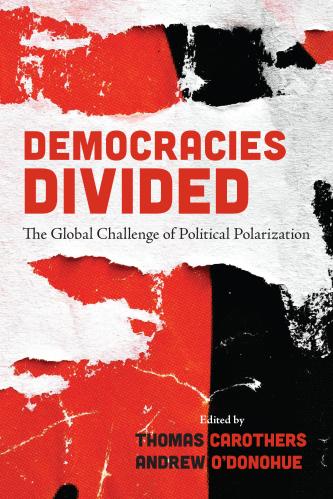
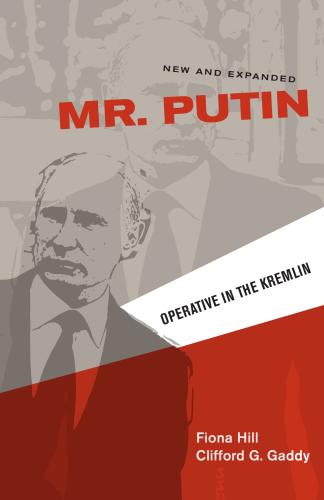
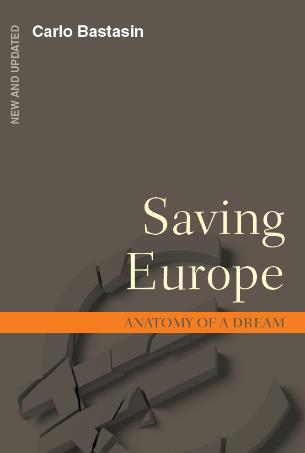
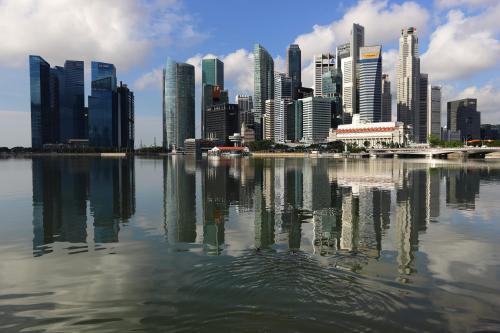
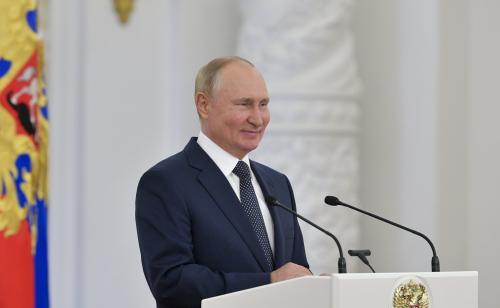
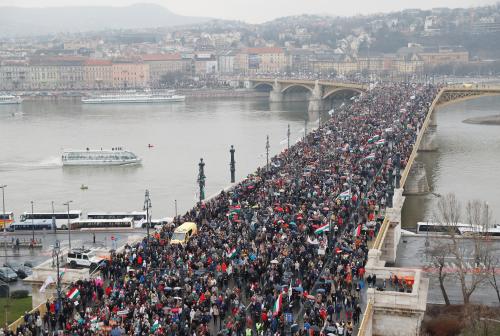




Commentary
When security in Europe conflicts with democracy in Poland
November 30, 2021